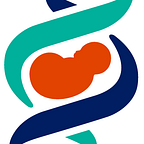Tomorrow Can’t Wait: 3 Things You Can Do Now to Tackle Inequality
Birth Defects Insights, a Society for Birth Defects Research and Prevention Blog
By Lauren M. Walker, PhD
When we examine the role of scientists in their communities historically, we tend to think of them as “neutral” or “impartial” entities. Part of the way of the world, yet somewhat separated from it. Until recently, we researchers — in the spirit of advancing our common goal and fostering a collegial atmosphere — have leaned towards “keeping politics out of” our research labs, conferences, and colleague-to-colleague interactions.
While it is true that we should not allow politics to interfere with conducting robust, ethical research, I doubt we can eschew “politics” entirely. With the outbreak of protests across America in the wake of the deaths of George Floyd, Breonna Taylor, Ahmaud Arbery, and countless others, some individuals have expressed a desire to “escape politics” or claim they are not “trying to be political.”
The word “politics” is frequently thrown out with a degree of disdain — but what does it actually mean? One definition: “the study of the ways in which a country is governed.” By this definition, “trying not to be political” is a willingness to opt out of engaging in how your community is shaped. As follows, now more than ever is our time to lean in and embrace every single member of our research community and beyond. If we are to be truly committed to building a strong, inclusive future for science and our country, we need to stand with our fellow humans now and moving forward.
Now is also a time for self-reflection and self-awareness. We need to check our biases, educate ourselves, and — most importantly — engage. Silence speaks volumes — and I’m not strictly referring to social media activity. Check in with your colleagues — how are they feeling? Many people of color are not ok right now. Yet, many people also feel constrained to uphold a calm exterior in order to maintain their professional reputations.
Over the last week, I’ve been actively referring my friends and colleagues to the great wealth of online allyship resources that teach how to build inclusive relationships with members of marginalized communities. If you’re unsure where to begin, I recommend the following resources as a starting point:
1. Guide to Allyship: An introduction to becoming an effective ally.
2. Justice in June: A curated guide to becoming an informed ally.
3. Resource Roundup: Your Kids Aren’t Too Young to Talk About Race
This is by no means an exhaustive list. There are many more resources to help unpack bias and stimulate proactive inclusion efforts. I recommend contacting your university’s office of diversity, equity, and inclusion and local cross-cultural, LGBTQ+, and women’s centers.
If we do not engage, we cannot make change. Scientists are a tough bunch — together we’re even stronger.
About the Author
Lauren Walker is a Postdoctoral Fellow studying developmental toxicology at the Rutgers University.
More about the Society for Birth Defects Research and Prevention (BDRP)
To understand and prevent birth defects and disorders of developmental and reproductive origin, BDRP promotes multi-disciplinary research and exchange of ideas; communicates information to health professionals, decision-makers, and the public; and provides education and training.
Scientists interested in or already involved in research related to topics mentioned in this blog are encouraged to join BDRP and attend the Annual Meeting being held virtually this year in June and July. BDRP is the premier source for cutting-edge research and authoritative information related to birth defects and developmentally mediated disorders. Our members include those specializing in cell and molecular biology, developmental biology and toxicology, reproduction and endocrinology, epidemiology, nutritional biochemistry, and genetics, as well as the clinical disciplines of prenatal medicine, pediatrics, obstetrics, neonatology, medical genetics, and teratogen risk counseling. In addition, BDRP publishes the scientific journal, Birth Defects Research. Learn more at http://www.birthdefectsresearch.org. Find BDRP on LinkedIn, Facebook, Twitter and YouTube.
